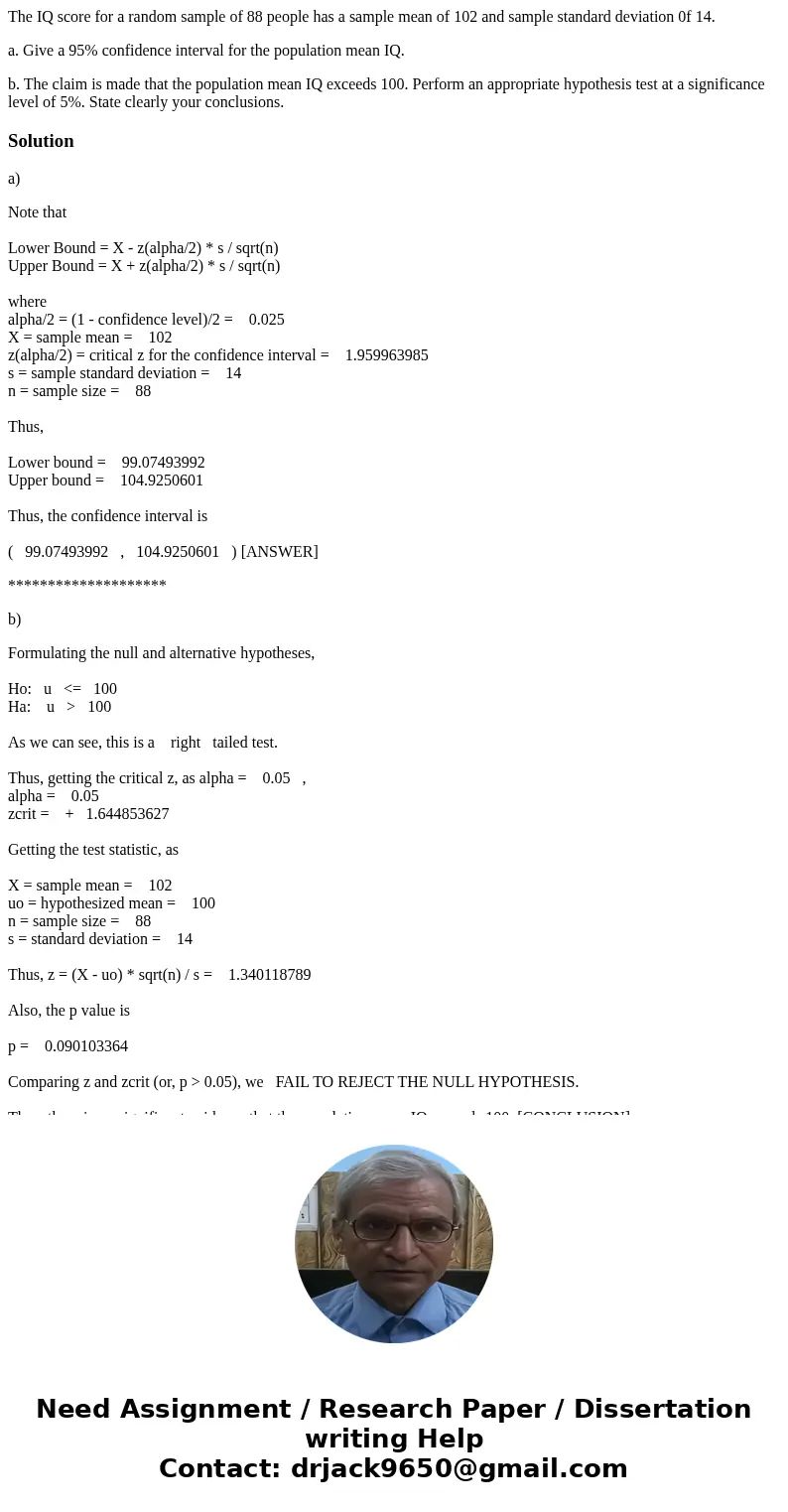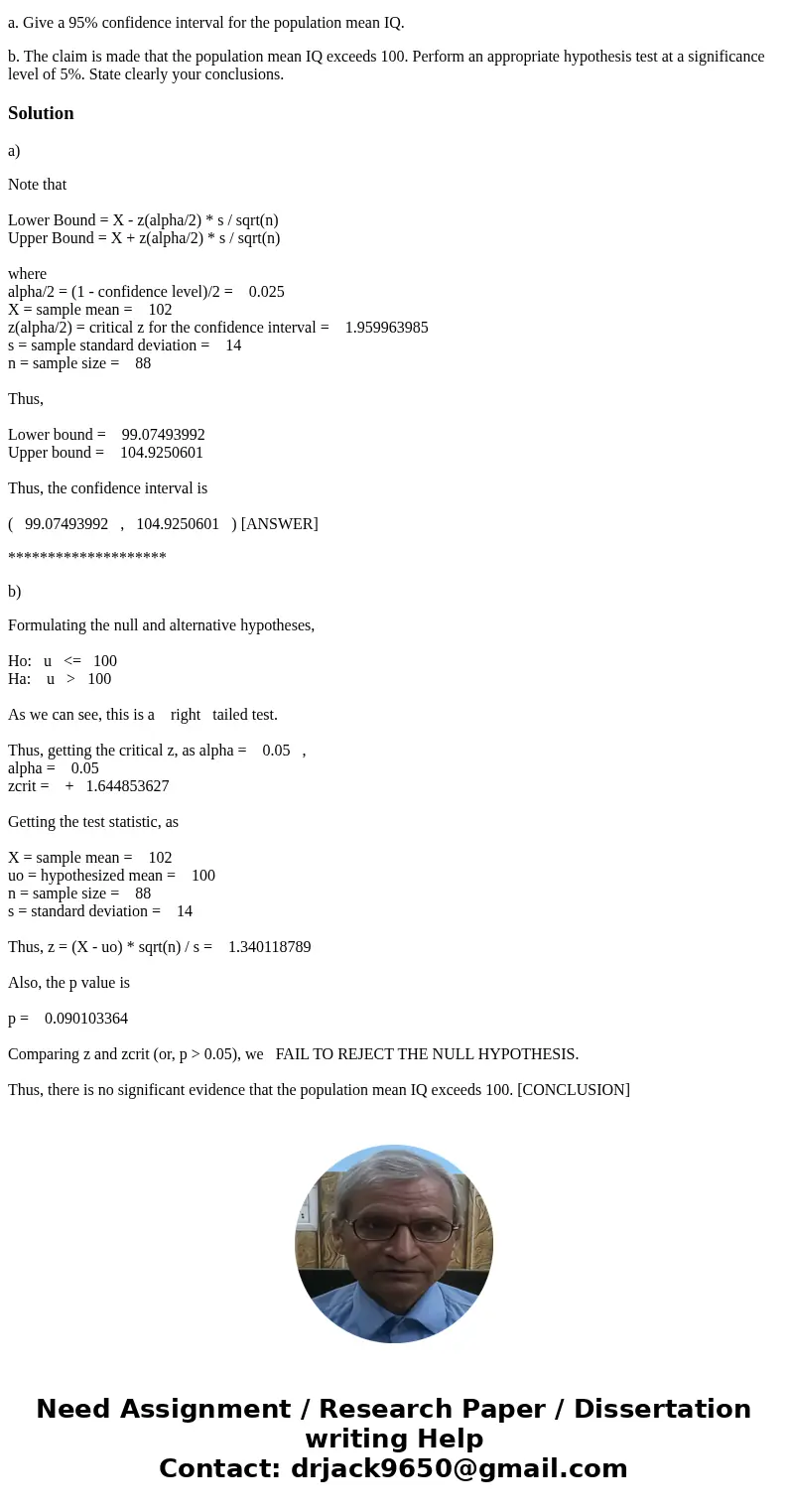The IQ score for a random sample of 88 people has a sample m
The IQ score for a random sample of 88 people has a sample mean of 102 and sample standard deviation 0f 14.
a. Give a 95% confidence interval for the population mean IQ.
b. The claim is made that the population mean IQ exceeds 100. Perform an appropriate hypothesis test at a significance level of 5%. State clearly your conclusions.
Solution
a)
Note that
Lower Bound = X - z(alpha/2) * s / sqrt(n)
Upper Bound = X + z(alpha/2) * s / sqrt(n)
where
alpha/2 = (1 - confidence level)/2 = 0.025
X = sample mean = 102
z(alpha/2) = critical z for the confidence interval = 1.959963985
s = sample standard deviation = 14
n = sample size = 88
Thus,
Lower bound = 99.07493992
Upper bound = 104.9250601
Thus, the confidence interval is
( 99.07493992 , 104.9250601 ) [ANSWER]
********************
b)
Formulating the null and alternative hypotheses,
Ho: u <= 100
Ha: u > 100
As we can see, this is a right tailed test.
Thus, getting the critical z, as alpha = 0.05 ,
alpha = 0.05
zcrit = + 1.644853627
Getting the test statistic, as
X = sample mean = 102
uo = hypothesized mean = 100
n = sample size = 88
s = standard deviation = 14
Thus, z = (X - uo) * sqrt(n) / s = 1.340118789
Also, the p value is
p = 0.090103364
Comparing z and zcrit (or, p > 0.05), we FAIL TO REJECT THE NULL HYPOTHESIS.
Thus, there is no significant evidence that the population mean IQ exceeds 100. [CONCLUSION]


 Homework Sourse
Homework Sourse